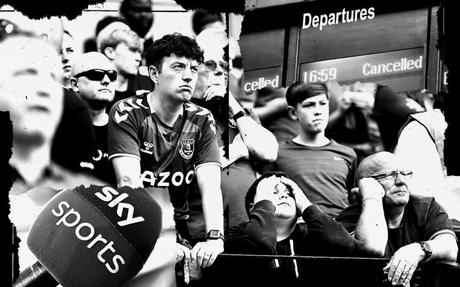
Shortly after 5pm on a Friday afternoon earlier this month, Chelsea published an urgent travel update on their website. With around 24 hours to go until kick-off of their match against Manchester City, the club was informed that a number of trains from Manchester to London were about to be cancelled.
Among the canceled trains were the last two direct services of the day, meaning Chelsea supporters wanting to return to London by train had to leave the Etihad Stadium at half-time. Within one day, thousands of fans' travel plans were torn to pieces.
What followed was a desperate scramble to find alternative arrangements. Replacement buses were purchased and minibuses hired. But for many supporters, exhausted by the grim predictability of another weekend of travel chaos, it was too much to sort and far too late to do so. The away match at City was inevitably pockmarked with empty seats.
To any competitive football fan in England, this story of travel problems will come as no surprise. Almost every supporter group can tell similar horror stories from recent years, when attending a football match has seemingly become more difficult and challenging than at any time in decades.
Supporters in this country are being crushed from three angles. Firstly, by a rail network that has been described by the Transport Secretary as "not fit for purpose". Secondly, due to rising ticket prices at many clubs, raising concerns that profit and sustainability regulations (PSR) are having a negative impact on supporters. And thirdly, by a Premier League system in which the broadcasters wield almost complete power.
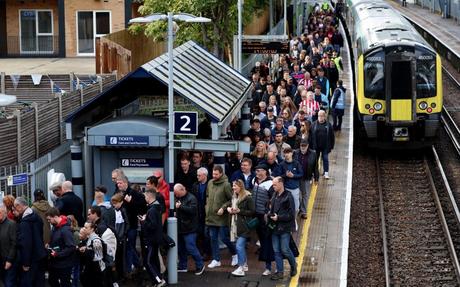
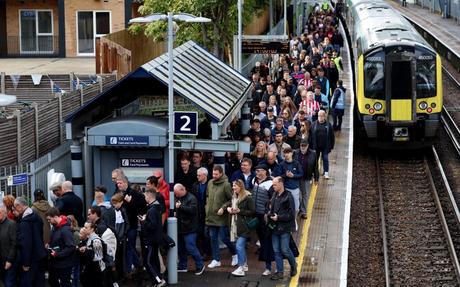
These three factors have combined to make this perhaps the worst time to be a match supporter in years. Just a few seasons after being repeatedly told during the Covid pandemic that loyal fans were the essence of football, those same supporters are now marginalised, deprioritized and often outpriced for following the team they love.
The story continues
Of these issues, the power of broadcasters is perhaps the most pressing. Much of the travel chaos starts with moving matches to different slots and different days, often at short notice.
"We are always told that fans are the lifeblood of the game," said Thomas Concannon, Premier League Network Manager at the Football Supporters' Association. "But there are so many other priorities that football puts first, because the assumption is that the supporters will be there anyway.
"It felt like we were turning a corner coming out of Covid as people realized how important fans were. But in the end, the broadcast money wins."
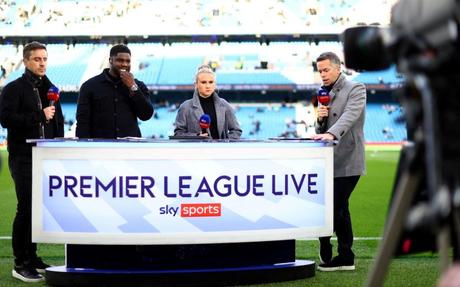
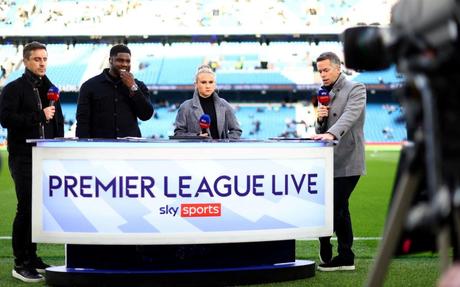
The situation has deteriorated in recent weeks. In the first half of the season, the Premier League committed to giving supporters at least six weeks' notice of broadcast selections. From January, that time was reduced to five weeks.
It is not unusual for games to be rescheduled with significantly less notice than five weeks. In January, for example, Luton Town's trip to Burnley was rearranged just five days before kick-off.
To be clear, scheduling fixtures is a complicated task for the Premier League, requiring consideration of factors such as other competitions (it was an FA Cup draw that forced Luton's meeting with Burnley to change), police demands and travel when making decisions. Most supporters will appreciate the complexity here, although the argument does little to appease those who feel marginalized and undervalued.
There was a particularly grim match for Chelsea fans this season as their trip to Wolves was moved to Christmas Eve, making it the first Premier League match in 28 years to take place on that day. "A real gesture of disrespect," said Dominic Rosso, the vice-chairman of the Chelsea Supporters' Trust.
'Fans are at the bottom of the priority list'
"The situation has deteriorated," says Concannon. "We have made statements to say we believe in it [the notice given to fans] should be much longer than six weeks. We'd like to see more from the clubs pushing back on some of the decisions made around kick-off. It believes that broadcasters currently have far too much influence on the game. Fans are at the bottom of the priority list."
Among the worst-hit fans this season are those who follow Newcastle United. The club's supporters' association said earlier this month that fan loyalty has been "taken for granted time and time again" after an extraordinary series of brutal kick-off times, including an 8pm start at Liverpool on New Year's Day and an 8.15pm start. at Villa Park on Tuesday.
In the Premier League, these traveling supporters are capped at £30 for away tickets. Fans in the Championship are not so lucky. They generally experience less match disruption, but in many cases away fans in the second tier now pay more for tickets than fans of top clubs.
For home fans in the Premier League, the costs of attending matches are becoming increasingly difficult to bear. This season, 17 of the 20 Premier League clubs increased their prices, some by double figures. At Fulham, for example, the cost of a season ticket increased by 10 percent in 2022, and then by another 18 percent in 2023.
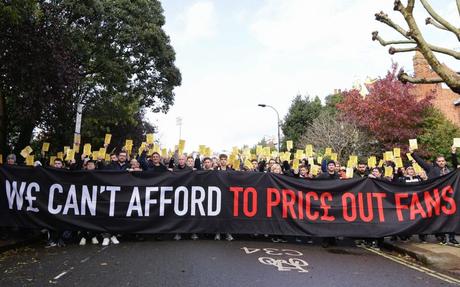
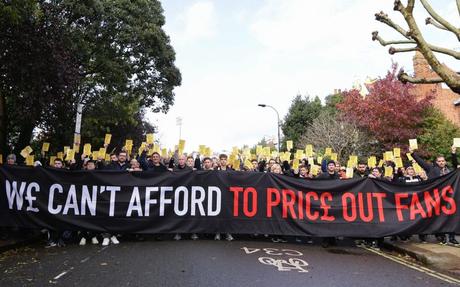
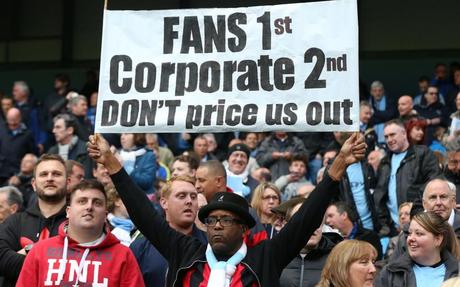
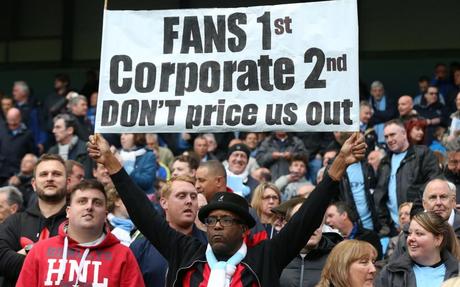
Earlier this month, Arsenal communicated to fans that ticket prices would rise again next season, by four to six percent per match. The expectation within the game is that many other Premier League clubs will soon follow suit.
For clubs, the defense of these increases is that they should try to maximize every source of income in this era of PSR. Matchday operating costs are also rising (for example, the cost of running Stamford Bridge has increased by 31 percent since 2018 - although in the specific case of Chelsea, general admission ticket prices have been frozen since 2011).
After all, in a league as competitive as the Premier League, every cent counts. And it must be said: the demand for tickets remains exceptionally high.
But these arguments rarely sit well with match supporters, especially when so much money flows into clubs in the form of sponsorship and broadcast revenue. Analysis from Deloitte shows that matchday revenue now accounts for just 17 percent of the total revenue of the so-called 'Big Six' clubs.
In other words, increases in ticket prices make a small difference for the clubs, but a big difference for the fans, especially in times of a cost of living crisis.
Is this really what the financial rules are designed for? To put further pressure on loyal fans?
"The unintended consequence of PSR is that it puts increasing pressure on supporters to keep up," says Tim Payton of the Arsenal Supporters' Trust.
For some clubs, such as Arsenal, these financial amounts pose difficult questions. "Mikel Arteta has understandably placed great emphasis on the bond between club and fans, and the atmosphere we have created at the Emirates," said Payton. "Sometimes it seems like that message hasn't reached those who set the prices."
Pricing is one problem, and access to tickets is another. "Demand for tickets is soaring across the big six clubs, but the problem is being exacerbated by the fact that they are turning more and more parts of Stamford Bridge into corporate hospitality areas," says Rosso.
"Those seats will be removed from the general admission allocation. I know members who have been going to Chelsea for a long time and have been able to attend around 10 games a season, and now they say they can't even make it to one or two."
Tourists buy tickets before local fans
At many clubs, especially in London, there is fear among loyal fans that tourists will get tickets before local supporters. Maybe clubs don't care about this - no fan is more entitled to a seat than any other, executives would argue - but if they care about atmosphere and performance, maybe they should.
We should not forget that the 2020/21 Premier League season, which was largely played behind closed doors, was the first season in the history of the English football league to record more away wins than home wins. Atmosphere is important.
"The football clubs will suffer in the long term," says Rosso. "Yes, you can sell that chair. But are you selling it to someone who loves the club or just wants a day out?"
For many supporters, all these problems together create a feeling of powerlessness. If their absence during the pandemic hasn't created lasting change, what will? They can keep campaigning and shouting, but money speaks loudest, and life for match fans is unlikely to get easier anytime soon.
"More and more fans are getting the feeling of being customers instead of supporters," says Rosso. "This is a sport created by the working class and adopted by the elite. It feels like football is being stripped of its soul."
